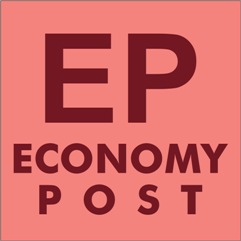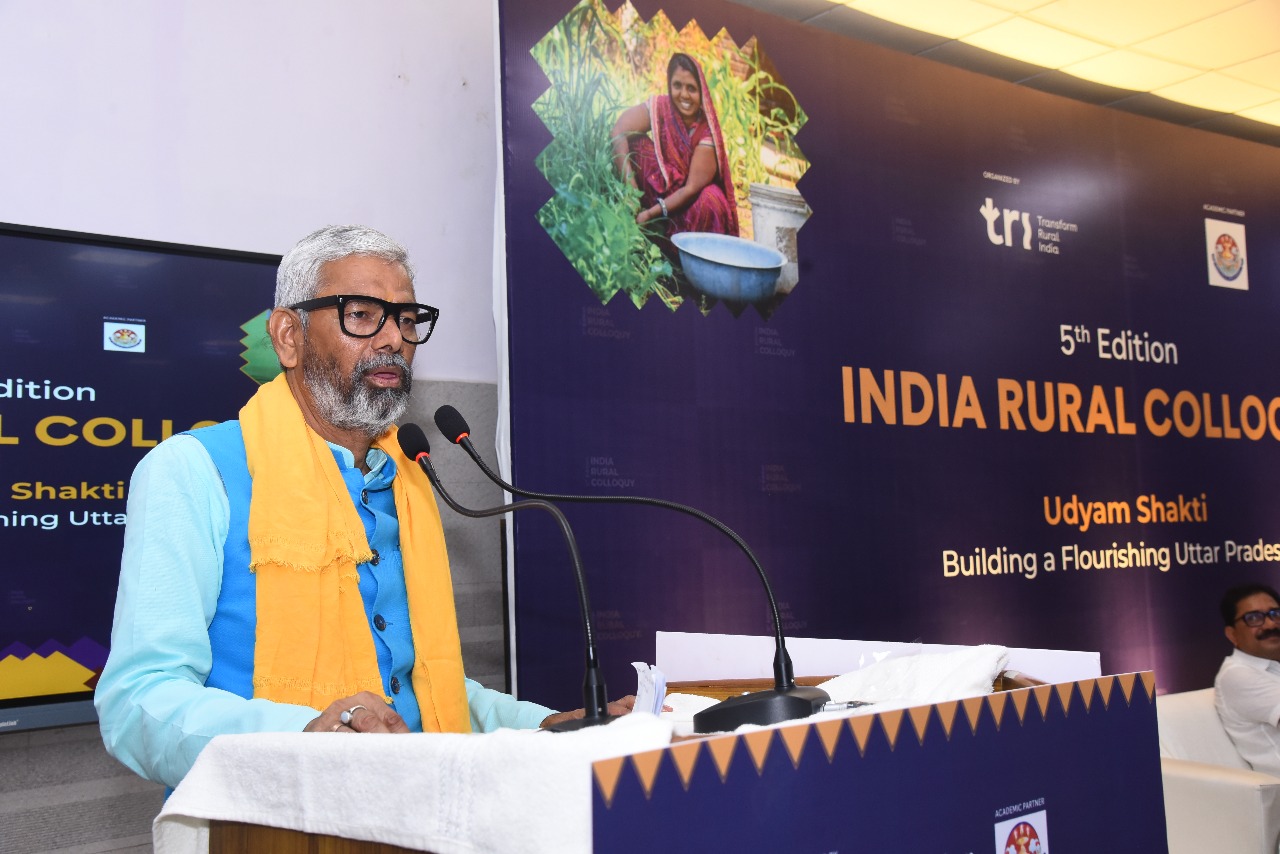Transform Rural India (TRI) hosted yesterday a vibrant 5th edition of the India Rural Colloquy (IRC) 2025 – Uttar Pradesh chapter – in Lucknow.
The IRC 2025 deliberated on imperatives for building a self-reliant and economically robust rural UP.
The forum brought together policymakers, thought leaders and grassroots representatives to deliberate on key themes, including youth entrepreneurship, resilient livelihoods, women-led FPOs, and rural market transformation.
Padma Shri Uma Shankar Pandey, honoured with the Jal Yoddha Samman said, “With India hosting 18 percent of the world’s population but only 1 percent of freshwater, and our rivers reduced from over 10,500 at Independence to just 500 with flowing water today, we must urgently revive traditional systems through the principle ‘khet ka paani khet mein, mitti bhi khet mein’.
Key sessions explored the role of entrepreneurship development among youth and the empowerment of youth-led enterprises through schemes such as CM-YUVA, particularly for rural women and marginalised communities.
Another session emphasised the need to strengthen value chains through women-led Farmer Producer Organizations (FPOs).
Dr Arvind Mohan, Dean at the University of Lucknow, said, “India’s rural economy holds the key to unlocking its trade and economic potential, including in India-US relations. The rural sector is a major engine for India’s multi-trillion-dollar aspirations.”
An estimated ₹2.5 to 3 trillion of agricultural produce is lost annually due to poor logistics and storage, hurting the poorest, he said.
“While reforms began in the 1990s, the next phase must focus on human development and rural transformation—the time for second-generation reforms has truly arrived,” he noted.
The event also witnessed participation from women leaders and youth entrepreneurs who have transformed local economies through innovation, collective action and entrepreneurial spirit.
Kareem Malik, Associate Director, TRI, shared, “The Colloquy means a conversation that brings together all relevant stakeholders to reflect on grassroots innovations and explore how they can inform and integrate into public policy.”
He observed the success of women FPOs in UP, highlights the need to scale such prototypes thoughtfully while aligning them with policy frameworks and systemic operations.
The event featured the launch of a short video titled ‘Women FPO Model – Panchtantra’ which showcases how women-led FPO, supported by TRI, are driving positive change in rural UP.
Alongside this, a booklet titled ‘SOP on Women FPO Promotion under NRLM Ecosystem’ was also released.
IRC, the flagship event of TRI, began as a virtual series five years ago has now grown into a dynamic, multi-state event that shapes narratives and catalyses change.
This year, the Colloquy returns with deeper regional engagement, stronger institutional partnerships, and a renewed commitment to amplify rural India’s voice on the national stage.
Multifaceted conversations and events will be held through the August Kranti week in Madhya Pradesh, UP, Chhattisgarh Jharkhand and Delhi.
The key insights and big ideas from the regional and national events will be converted into actionable steps, leading to a roadmap turning dialogue into impact for India’s rural renaissance.

